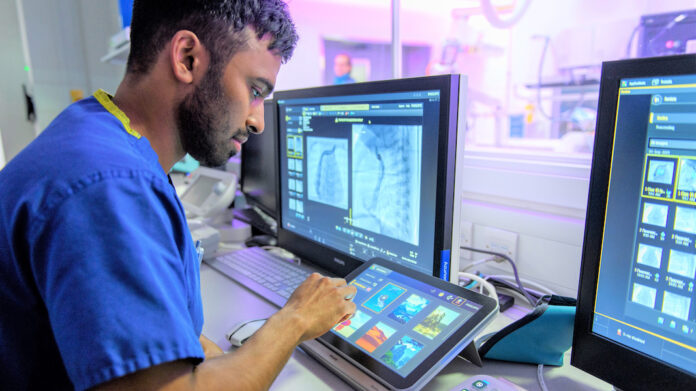Healthcare professionals in the Asia-Pacific region are counting on new care delivery models to enable better patient outcomes, improved ways of working, and pave the way towards a more environmentally sustainable industry, according to the Future Health Index 2023 from Royal Philips.
The eighth edition of the report, which surveyed nearly 3,000 respondents spanning healthcare leaders and young healthcare professionals in 14 countries, including Australia, Indonesia, and Singapore, shows that a new model of healthcare is emerging in APAC.
“For decades, healthcare has been primarily delivered in centralised facilities like hospitals,” Caroline Clarke, CEO and EVP at Philips APAC.
“We are seeing a shift towards a distributed model of care delivery in APAC that uses smart and connected digital health technologies and data to bring care closer to patients, at home or in the community, to where they are, anytime-anywhere,” said Clarke.
Two-thirds (66%) of healthcare leaders and younger healthcare professionals say that they are well equipped to work effectively with the new care delivery models, while 63% believe care will be delivered in a more environmentally friendly and sustainable way. These beliefs score higher than the global average of 59% and 57% respectively.
The research also reveals a positive impact on staff morale and retention. The majority of the region’s healthcare professionals expect the new care delivery models to offer healthcare staff a better work-life balance (58%) and contribute to greater work satisfaction (56%) than traditional healthcare models.
Increased patient compliance and adherence to treatment (44%), improved patient education (36%), increased efficiency (such as shorter waiting times, more patients seen), collaboration with local communities to improve population health and more technologically advanced healthcare (all 35%) are also seen as major benefits.
The adoption of new care delivery models in APAC is being powered by increased investment in digital health technologies and the expansion of virtual care to more areas of the healthcare ecosystem.
Digital health records are currently the top investment area for APAC’s healthcare leaders (48%). Almost three quarters (74%) of healthcare leaders are planning to invest in AI in the next three years, led by Singapore (84%), followed by Indonesia (76%) and Australia (63%), primarily to predict outcomes (39%), for clinical decision support (35%), and to integrate diagnostics (33%).
APAC healthcare leaders are also moving towards a distributed healthcare model that prioritises anytime-anywhere care beyond hospital walls by expanding virtual care to more areas of the healthcare ecosystem other than diagnostics.
Half (51%) of APAC’s healthcare leaders say that their facility already provides intensive or critical care support virtually and 42% say they plan to do so in the future, while 62% say that they are currently providing acute care at home virtually or through in-person visits, and 31% plan to do so in the next three years.
To offer new ways of delivering care, more than half (58%) of the healthcare leaders and younger healthcare professionals in APAC agree that the training available provides healthcare staff with the required skills.
Nearly one-third of the healthcare leaders pinpoint data interpretation skills (29%) and staff willingness to adopt new technologies (29%) as success factors in their roll out of new delivery models, whilst 44% of younger healthcare professionals agree that they need better training on new technologies to feel empowered to improve patient care.
The report also finds that APAC healthcare leaders are at the forefront of using technology to tackle the staff shortages that are becoming a global industry problem.
Two-thirds (67%) of them (vs 56% globally) already use, or plan to use, digital health technology to reduce the impact of healthcare workforce shortages. Leaders in Indonesia (77%) and Singapore (75%) are especially focused on this.
















